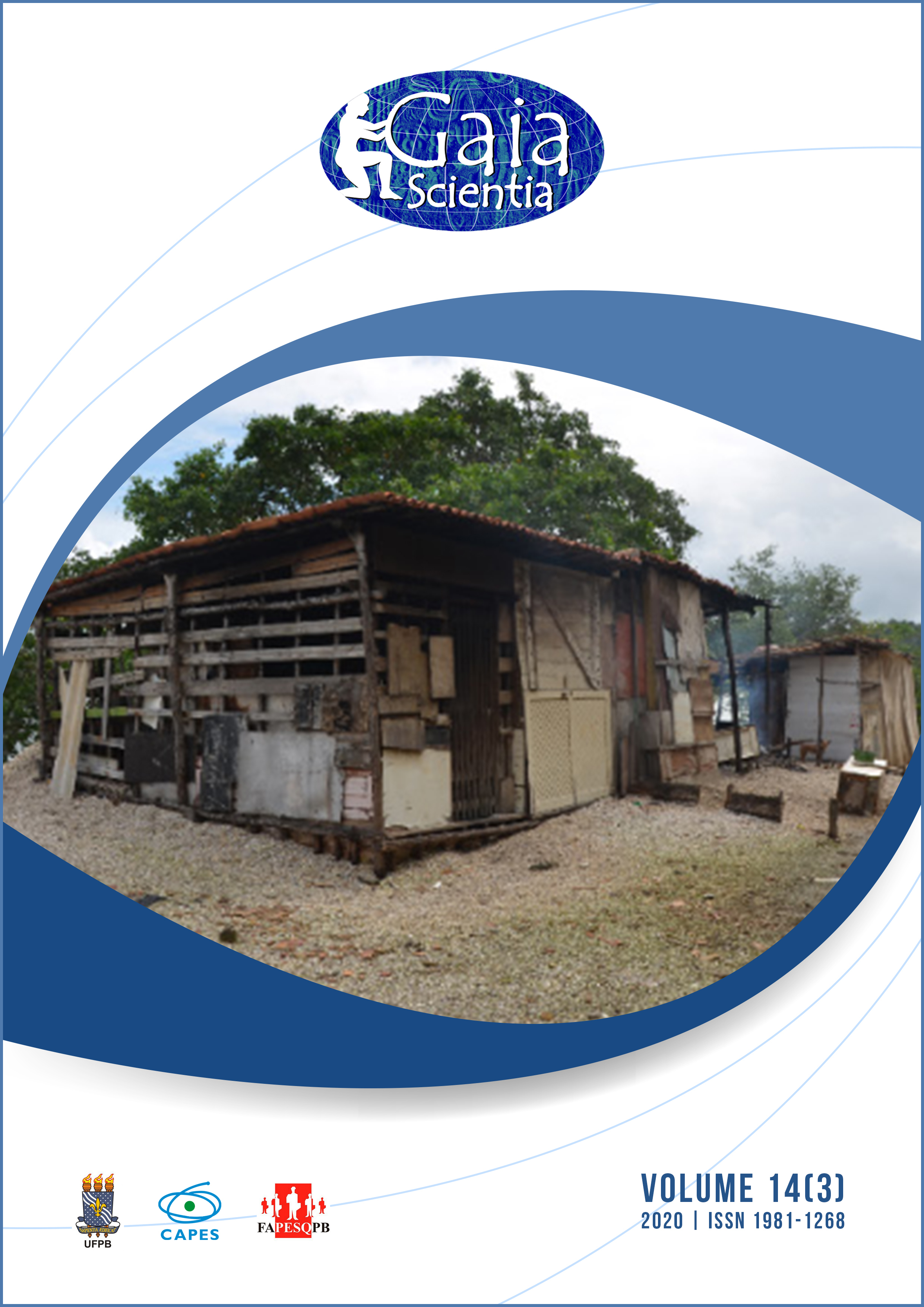Uçá crab (Ucides cordatus Linnaeus 1763): sustainable management of the Uçá crab in the APA / ARIE of Foz do Rio Mamanguape
DOI:
https://doi.org/10.22478/ufpb.1981-1268.2020v14n3.51133Abstract
The efficiency of Protected Areas (PA) is found in the type of governance practiced and in the establishment of environmental management instruments. The management of PA in Brazil advocates a participatory and shared model, however, its exercise is a challenge for environmental agencies. Thus, this study aimed to assess the contributions and participation of crab catchers in the management and sustainable management of the Uçá crab (Ucides cordatus) at the APA / ARIE of Foz do Rio Mamanguape, as well as their perception of the management model. The methodology is based on the perception and local ecological knowledge, being a qualitative quantitative research, using the techniques of participant observation and semi-structured interview. The study exposes the Uçá crab production chain at the APA / ARIE of Foz do Rio Mamanguape and the participation of the crab catchers in the management process. One of the findings is that the management of the Uçá crab practiced by the catchers is dissociated from the governance of the conservation units and that there is a gap between the crab catchers, management council and ICMBIO. Thus, it is concluded that the management of the Uçá crab resource is centralized and the policy guiding the management of this resource does not meet the local aspects.










